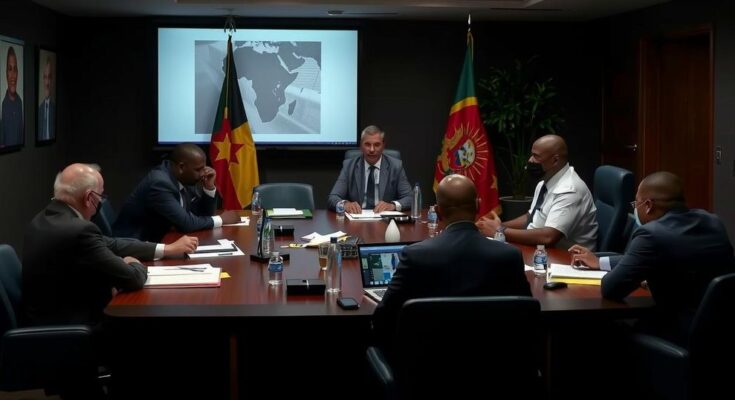The Southern African Development Community (SADC) has called an extraordinary summit to address the escalating crisis in Mozambique, where violent protests have erupted following a contentious election. At least 18 people have allegedly died at the hands of security forces. Opposition claims of electoral fraud have heightened tensions, prompting military warnings from the government. The summit aims to seek solutions to restore stability in the region as economic concerns mount.
The Southern African Development Community (SADC) has convened an extraordinary summit to tackle the escalating post-election turmoil in Mozambique, where violent protests have erupted following the contentious election held on October 9. Rights organizations report that security forces have killed at least 18 individuals during the unrest, which erupted after the ruling Front for the Liberation of Mozambique (FRELIMO) was declared the winner over independent candidate Venancio Mondlane. Opposition groups have contested the legitimacy of the election, alleging extensive electoral fraud. As Mozambique prepares for further demonstrations, Defense Minister Cristovao Chume has indicated that military action may be necessary to restore order. SADC, chaired by Zimbabwe, is set to meet in Harare from November 16 to 20 to discuss significant political developments across the region, including the situation in Mozambique and upcoming elections in Namibia. In light of the unrest, many countries in the region, such as Zimbabwe and Zambia, are concerned about the unrest affecting their economies, which heavily depend on access to Mozambican ports. As protests continue to threaten stability, Chume has remarked that the rise of violence is damaging national unity and infrastructure. “Violent demonstrations are sowing hatred between brothers,” he stated, emphasizing the need for the military to protect citizen interests if conditions worsen. Obsevers from the European Union have voiced concerns about the integrity of the election process, with allegations of manipulation by electoral authorities to ensure FRELIMO’s continued dominance since Mozambique’s independence in 1975. President Emmerson Mnangagwa of Zimbabwe drew criticism for congratulating FRELIMO prematurely, before official results were made public. This extraordinary SADC meeting aims to seek a viable solution to the mounting challenges in Mozambique amid criticisms regarding the organization’s past endorsements of flawed elections in the region. In contrast to Mozambique’s crisis, Botswana has recently witnessed a peaceful transfer of power to former opposition leader Duma Boko of the Umbrella for Democratic Change. Additionally, Namibia will conduct significant elections on November 27, where the ruling Swapo party aims to sustain its historical dominance amidst new political dynamics following the passing of President Hage Geingob. The unfolding events in Mozambique illustrate the delicate balance of democracy and stability in the region, raising questions about SADC’s role and effectiveness in managing electoral integrity and conflict within its member states.
The article addresses the political turbulence in Mozambique following the October 9 election, which has led to violent protests and alleged human rights abuses committed by security forces. The ruling party, FRELIMO, claimed victory, but the opposition and numerous rights groups argue that the electoral process was marred by significant fraud and irregularities. SADC’s involvement highlights regional concerns regarding stability and economic impact stemming from unrest in Mozambique, as neighboring countries depend on its ports for trade. Amidst these developments, SADC is also handling elections in Botswana and prepares for upcoming elections in Namibia, emphasizing the regional political climate.
The extraordinary SADC summit marks a crucial attempt to address the escalating crisis in Mozambique, exacerbated by post-election violence and accusations of fraud. As instability poses risks to the broader Southern African region, the forthcoming discussions will be pivotal in seeking solutions to restore order and uphold democratic principles in member states. The contrasting peaceful transition of power in Botswana further underscores the complexities of governance and electoral legitimacy across the region.
Original Source: www.theeastafrican.co.ke




